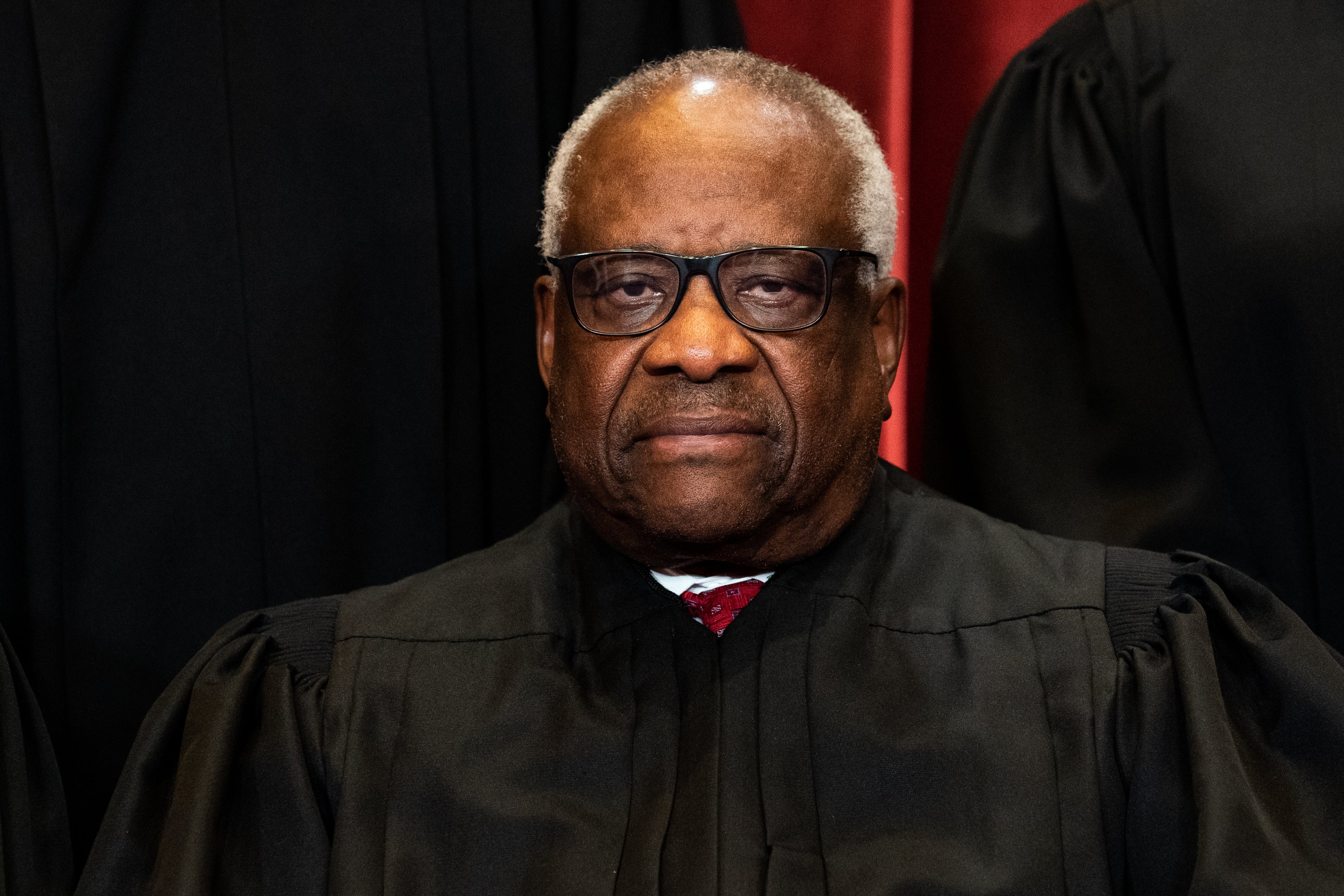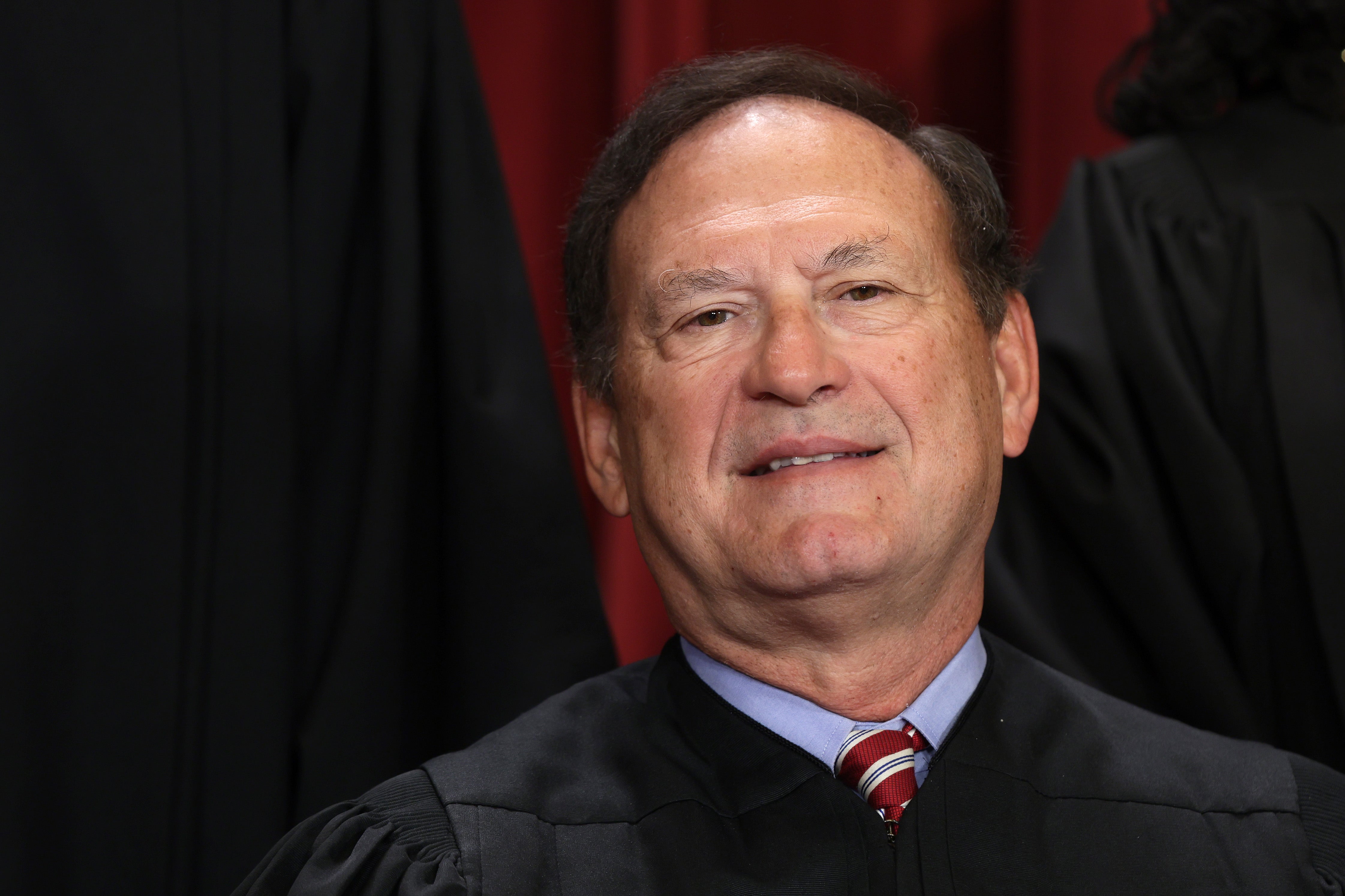Support truly
independent journalism
Our mission is to deliver unbiased, fact-based reporting that holds power to account and exposes the truth.
Whether $5 or $50, every contribution counts.
Support us to deliver journalism without an agenda.

Congresswoman Alexandria Ocasio-Cortez has introduced articles of impeachment against conservative Supreme Court justices Clarence Thomas and Samuel Alito, whose refusals to step away from major cases despite their personal and financial entanglements have presented “a grave threat to American rule of law.”
Her office announced the effort on Wednesday, but it faces an uphill climb in the Republican-controlled House of Representatives. The House must first vote to impeach, and then the Senate would vote on whether to convict the justices.
Democratic officials and ethics groups have warned for years that the justices’s behavior presents serious conflicts on the nation’s high court.
On Wednesday, the progressive Democratic lawmaker from New York said that both Alito and Thomas’s “pattern of refusal to recuse from consequential matters before the court in which they hold widely documented financial and personal entanglements constitutes a grave threat to American rule of law, the integrity of our democracy, and one of the clearest cases for which the tool of impeachment was designed.”
Thomas has faced widespread criticism and threats of ethics investigations from members of Congress after a sweeping investigative report discovered extensive ties to a prominent Republican donor who paid for his travel and accomodations.
His wife, Virginia “Ginny” Thomas, was also involved in efforts to overturn the results of the 2020 presidential election.

Alito has also faced criticism after it was revealed that flags seen outside the Capitol riot on January 6, 2021 were put up outside his homes in Virginia and New Jersey.
Both justices refused to recuse themselves from two major cases involving January 6 before the court this year, including a case involving obstruction charges against a convicted rioter, and a case to determine whther Donald Trump has “immunity” from prosecution in a case stemming from his efforts to reverse his election loss.
Ocasio-Cortez had criticized the ruling as “an assault on American democracy.”
“It is up to Congress to defend our nation from this authoritarian capture.” said in a statement earlier this month.

In a statement on Wednesday, Ocasio-Cortez said that there is an “unchecked corruption crisis” on the court which has “spiraled into a Constitutional crisis threatening American democracy writ large.”
“Justice Thomas and Alito’s repeated failure over decades to disclose that they received millions of dollars in gifts from individuals with business before the court is explicitly against the law,” she added.
The three articles of impeachment against Thomas include “failure to disclose financial income, gifts and reimbursements, property interests, liabilities, and transactions, among other information, refusal to recuse from matters concerning his spouse’s legal interest in cases before the court,” and “refusal to recuse from matters involving his spouse’s financial interest in cases before the court.”
The articles against Alito include “Refusal to recuse from cases in which he had a personal bias or prejudice concerning a party in cases before the court,” and “failure to disclose financial income, gifts and reimbursements, property interests, liabilities, and transactions, among other information.”

The articles of impeachment come as Democrats in Congress have introduced several pieces of legislation to overhaul the Supreme Court, from codes of ethics to attempts to block precedent-shredding decisions that will have profound effects on government and society.
Ocasio-Cortez’s fellow New York Representative Joe Morrelle is introducing a new constitutional amendment that would explicitly state that presidents are not immune from criminal prosecution in an attempt to reverse the high court’s ruling.
Several Democrats in the House and Senate have issued calls to expand the number of seats on the Supreme Court from its current nine-member panel, a makeup that has been the same since 1869 when there were only nine circuit courts taking up litigation that would get to the high court. There are now 13.
However, it is extremely unlikely that any of the above measures survive in a Republican-dominated House and a deadlocked Senate.
Congressional Democrats have also been trying to impose ethics and transparency rules for Supreme Court justices, efforts that were quickly swatted down by Senate Republicans.

